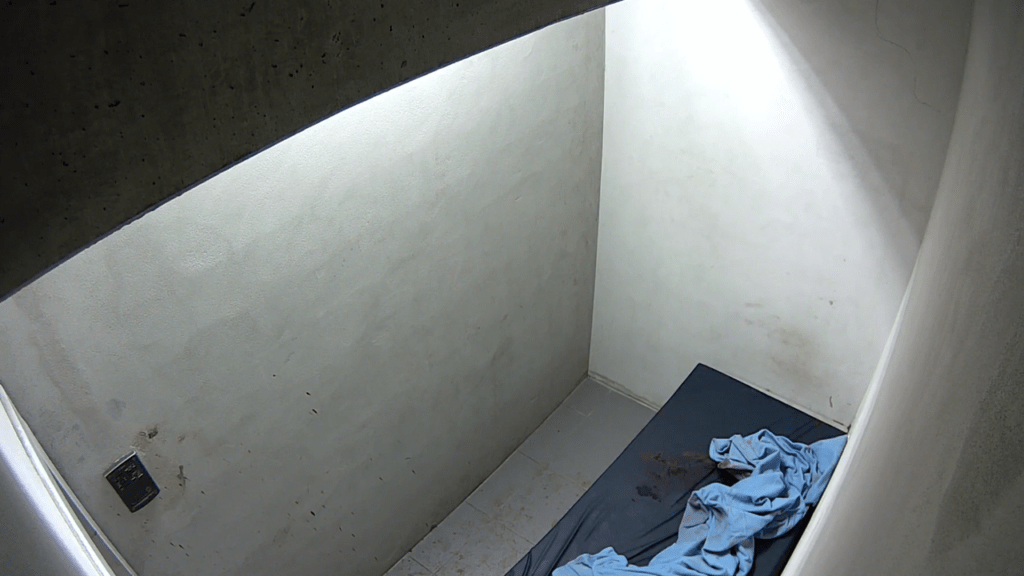Jozef Chovanec, the Slovakian man who died after an incident in a police cell, died of injuries he caused himself and not at the hands of the police, according to a new report.
Chovanec died in hospital in Charleroi, three days after an altercation in a police cell at the airport. He had been trying to board a flight back to Slovakia but became agitated and was removed from the flight.
He was then picked up by airport police and placed in the cell, where he began to beat his head against the steel door. Three police officers entered the cell to restrain him while a paramedic administered a tranquilliser.
However it was then found that his vital signs were poor, and he was taken to hospital.
An enquiry was opened but made little progress, until footage of the incident in the cell was leaked to the media last year, clearly showing the heavy-handed intervention by police and leading to public outcry and questions in parliament.
However a new report, compiled by experts named by the civil parties in the case – Chovanec’s wife and the Slovakian government, argues the fatal injury was self-inflicted, when Chovanec was slamming his head against the cell door.
According to RTL, which has seen the report, cause of death is given as cerebral oedema, or swelling of the brain, caused by head trauma.
The alternative thesis, that he had been suffocated by police restraint, is rejected. “There were no signs found of a lack of oxygen,” the report allegedly says.
The lawyers for the police officers involved welcomed the report as an important element in the investigation. “There is currently nothing to prove that my clients' intervention is linked to the death,” said one.
But the lawyer for the family, Ann Van de Steen, called the whole report into question. Speaking to De Morgen, she said, “We are stunned and know nothing. I would like to emphasise that we have in no way taken cognisance of the report quoted from. Neither a preliminary report nor a final report was sent to the family's lawyers or their appointed experts. Even the existence of such a report has never been reported to us to date.”
A reconstruction of what happened in the cell that night is planned for the end of this month, and any report written before that would be premature, she said.
“If it turns out that a report was drawn up without waiting for the reconstruction and without the knowledge of the experts appointed by the victim's family, this would be a particularly serious incident. This raises serious questions about the structure of the reconstruction and the objectivity with which the research is conducted," she said.

